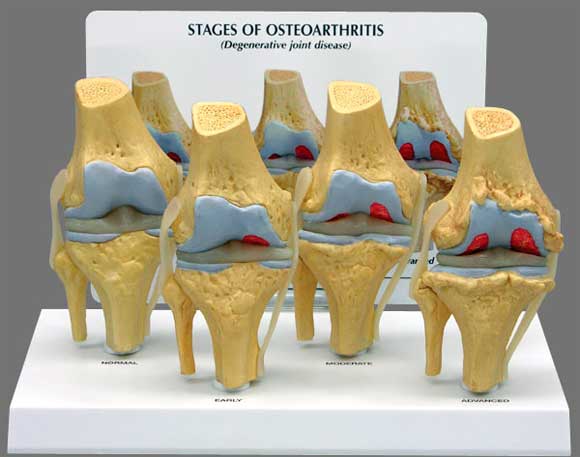Creatine supplementation is almost turning into the Aspririn® of the supplement industry. No, it’s not quite a complete parallel in terms of why people supplement with creatine, but new uses are often being found for this traditional sports supplement. Either way, I guess it’s too late for the slogan, “Creatine, the wonder supplement that works wonders.”
As one example, creatine was recently found to help improve memory in vegetarians. In another study, creatine supplementation was found to improve blood sugar control in those with type 2 diabetes (along with routine exercise).

Research on Creatine and Arthritis
In a very recent study published in the journal, Medicine & Science in Sports & Exercise, researchers from the University of Sao Paolo published their findings on the effects of creatine supplementation along with resistance training on osteoarthritis[1].
As some background, osteoarthritis is the most common form of arthritis which affects over 20 million Americans. It involves primarily the articular cartilage with the synovium or soft tissue lining the joint capsule as well as the subchondral bone itself. The articular cartilage itself gets eroded away and subchondral bone forms.
Back to the recent study… For this particular study, women with osteoarthritis were randomly assigned to either a placebo or creatine group. In total, there were 26 participants in this study with an equal number in each group. Supplementation with creatine started at a dose of 20g/d for 1 week followed by 5 g/d for the remainder of the study (12 weeks total duration).
Both groups participated in a resistance training program for 12 weeks supervised by a fitness professional. This included the leg press, leg extensions, and half squats.
Study results:
- Physical function and stiffness were only improved in the CR group.
- The CR group had an improvement in both quality of life measures and lower body lean mass.
- Both the CR and placebo groups demonstrated statistically significant reductions in pain.
Study author conclusions:
“In summary, we showed for the first time that CR supplementation is safe and capable of improving physical function, lower limb lean mass and quality of life in postmenopausal women with knee OA undergoing a resistance training program. These findings further support the growing body of evidence favoring the therapeutic application of CR supplementation, particularly when combined with exercise training.”
For those who specifically suffer from osteoarthritis of the knee, this as well as other research suggest that resistance training alone can be beneficial. The study authors also stressed that they did not observe any adverse effects of creatine supplementation in their study.
Arthritis can be a very painful and debilitating condition, so talk to your doctor about exercise options for improving the quality of your life.
Reference:
- Neves M Jr, Gualano B, Roschel H, Fuller R, Benatti FB, de Sá Pinto AL, Lima FR, Pereira RM, Lancha AH Jr, Bonfá E. Beneficial Effect of Creatine Supplementation in Knee Osteoarthritis. Med Sci Sports Exerc. 2011 Feb 8. [Epub ahead of print]





